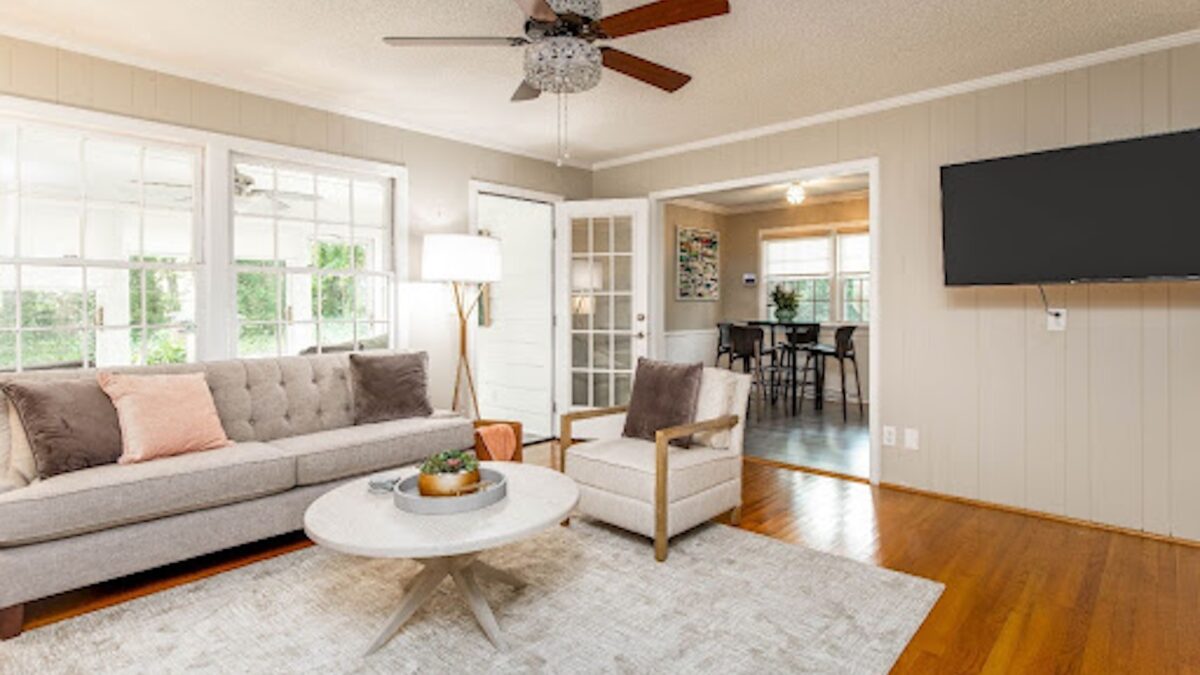By Heather R. Johnson
Whether you’re moving to a new country or returning from living abroad, moving internationally is both a cultural and logistical challenge. A move to a foreign country requires much more than hiring a mover to pack and transport your possessions. International shipping is expensive, and if you don’t want to cover the full bill, you must decide what items to send and what items to rent or buy new.
If you’re moving for work, some employers provide a moving allowance to help cover the expense, and others contract directly with international movers to transport your belongings for you. Depending on the circumstances of your move, you may have to take care of everything on your own.
The Challenges of Shipping Furniture
Even if you have relocation assistance or the funds to pay for shipping, your favorite sofa may sit in customs for a month or more after arrival. “When we moved to Virginia from Italy, it took about six weeks for our belongings to clear customs,” says Eric Gardner, a Virginia Beach-based real estate agent and relocation expert who works with military families. A retired Navy captain, Gardner has moved 13 times between locations in Italy, Japan, and the U.S.
In addition to the hassle of filling out customs forms and waiting several weeks, the cost is prohibitive for many people. International movers base rates on volume, and large pieces of furniture take up a lot of space.
For example, one international mover quoted a price of almost $1,800 to ship 200 cubic feet of furniture from San Francisco to London, and that fee does not include local duties and taxes, insurance, customs inspection and scanning fees, packing surcharges for small and/or fragile items, or for storage longer than 30 days, if applicable. The delivery time estimate is up to eight weeks.
When to Buy or Rent New Furniture
Rather than pay expensive moving charges, many international travelers opt to buy or rent furniture in their new locations. If you choose this option, pack personal mementos, clothes, and other important items in your luggage and other small containers. Sell your existing furniture and use the money to cover additional moving expenses.
The military, government agencies, and some companies may move you into a furnished home for convenience. “Many government employees live in government or embassy housing, and some of those are furnished,” says Gardner. “They only have to bring personal items, which makes for an easier move.”
If a furnished home isn’t part of your plan, then buying or renting furniture are good options. If you know your arrival date, shop in advance and schedule delivery for shortly after you arrive. Don’t rush your purchases, or the bed you buy in haste could lead to months of sleepless nights. In the interim, Gardner advises renting furniture until you get settled. “Some corporations cover furniture rental in their moving package,” he says.
Why Furniture Rental Makes Sense
To make an international move to the U.S. as comfortable and seamless as possible, rent necessary items from an established furniture rental company. CORT Furniture Rental allows you to rent by the piece, by the room, or for the entire home. Furniture rental is available in all 50 states, making it easy to find a location near your destination.
With CORT as your moving partner, you never have to worry about sleeping or eating on the floor. When you order online, the company delivers your furniture in as little as 48 hours, and professionals set up everything, right down to the last fluffed pillow.
Whether you’re on a three-year military assignment or working in the U.S. on a contract project, furniture rental is a practical solution. Furniture rental terms typically range from one month to several years, giving you the flexibility you need for such a major transition.
Moving to the U.S. takes a lot of planning, no matter how much you decide to bring. When determining shipping versus buying or renting, consider your budget and your patience for handling customs, in addition to what it will take to make your new dwelling really feel like home.
Heather Johnson is a freelance writer based in the San Francisco Bay Area. Her experience includes legal, technology, home and garden, small business, real estate, health/healthcare, energy, and general interest topics. She has written for consumer, trade, and custom publications, as well as for companies and individuals, for more than 15 years.





